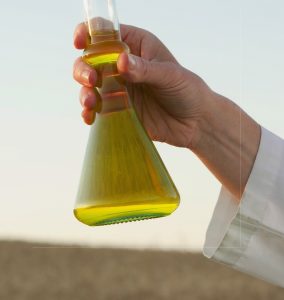The US glycerine markets are seeing finely balanced supply/demand dynamics as the second half of 2018 ramps up.

Market participants are trying to gauge supply tightness in coming months, and the supply/demand balance is delicate.
With most US producers across the vegetable and tallow tiers sold out and fully contracted for the third quarter, there is discussion that any supply disruption could push pricing up in coming months.
“There was a Midwest producer who had a plant issue in the first quarter, and that caused some of their buyers to frantically try to source material and was one of the reason the market tightened up so quickly in Q1,” a seller said.
While the domestic supply situation remains snug, spot markets globally are starting to reflect the easing supply situation.
Glycerine supply continues to lengthen in southeast Asia with biodiesel producers ramping up production due to higher biodiesel demand as a result of a narrower price gap between palm oil and gasoil.
In Europe, a crude oversupply situation may ease in the fourth quarter, with less upstream biodiesel imports set to arrive into the European Union due to uncertainty over duties.
Looking to South America, many market players will be closely watching the outcome of the Argentine biodiesel trade fight with Europe.
Biodiesel producers and glycerine refiners in Argentina expect the EU to stop importing biodiesel in the second half of the year by imposing new tariffs in September or October.
The European Commission (EC) announced earlier in May that any biodiesel imports from Argentina will be registered from 24 May for the next nine months. This is in order to retroactively impose tariffs on those imports if the current anti-subsidy case finds biodiesel from the country is being subsidised.
Most biodiesel plants produce crude glycerine at a 1:10 ratio, while additional costs will have to be incurred to process the product into refined glycerine for higher value application.
Argentine biodiesel and crude glycerine production was sharply affected when the US imposed tariffs on Argentine biodiesel in November 2017.
Tarriffs on Argentinean biodiesel were set at over 72%, as required by the US Department of Commerce in November 2017.
Following the closure of the US biodiesel market to Argentine volumes, biodiesel production in Argentina declined by 20.5% in Q3 2017, according to the nation’s statistics agency (INDEC).
The Argentine biodiesel sector expects to export about 700,000 tonnes of biodiesel to Europe in 2018, but this impending decision by the EC could derail those import plans for the South American biodiesel giant, which would affect global glycerine supply and could see tighter supply in an already delicately balanced market.
US refined glycerine suppliers include Procter & Gamble, Vantage Oleochemical, Emery Oleochemical, Twin Rivers Technology, Peter Cremer North America, ADM, Cargill, Owensboro Grain, Louis Dreyfus and Future Fuels among others.
No comments:
Post a Comment